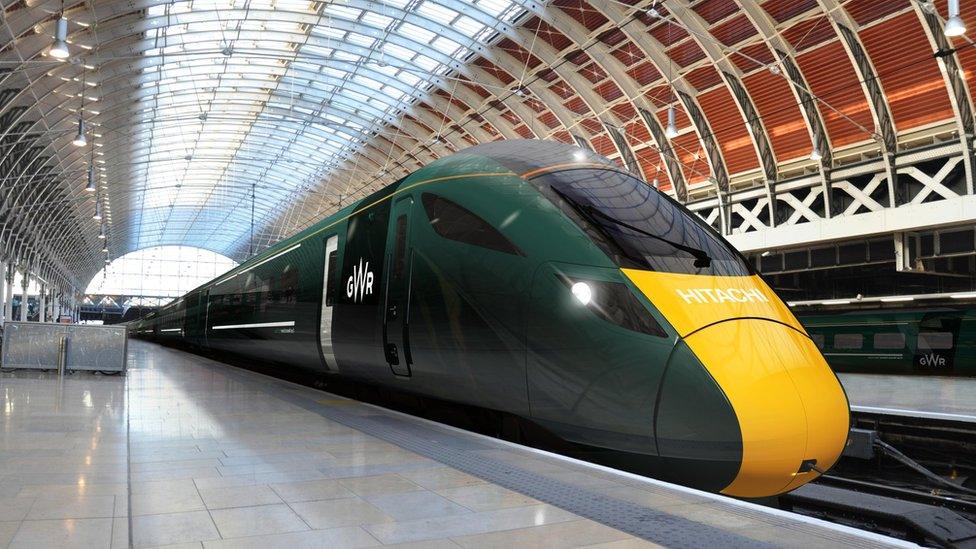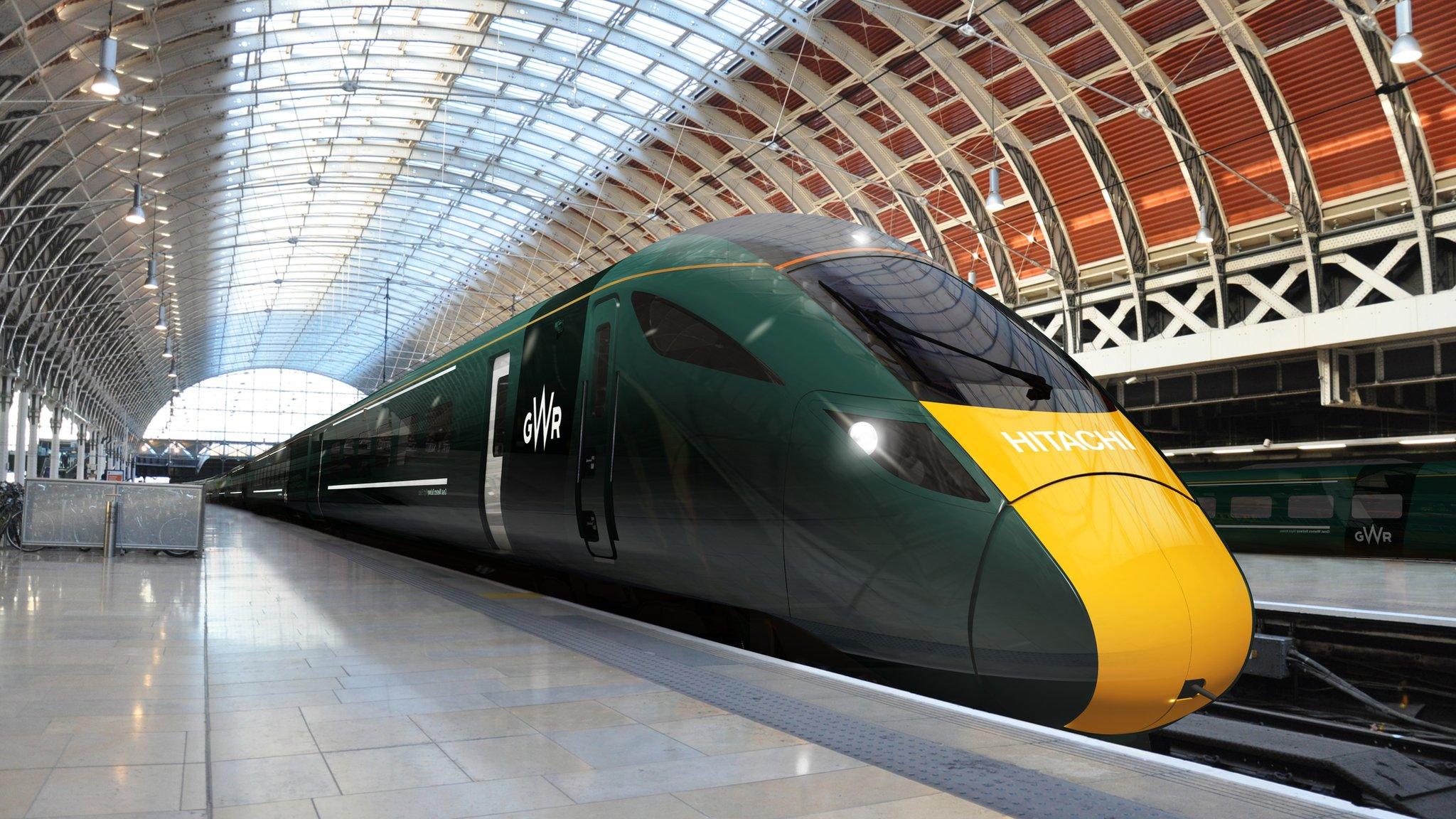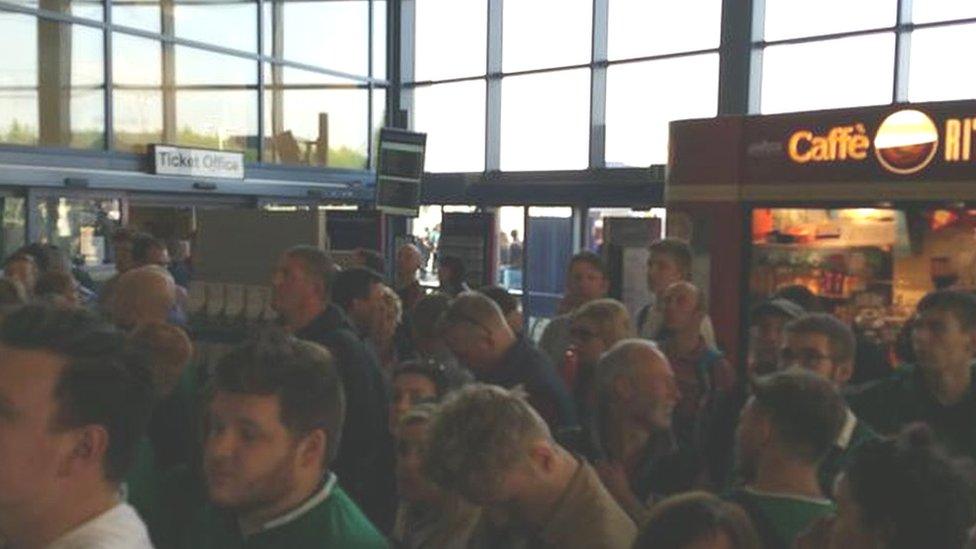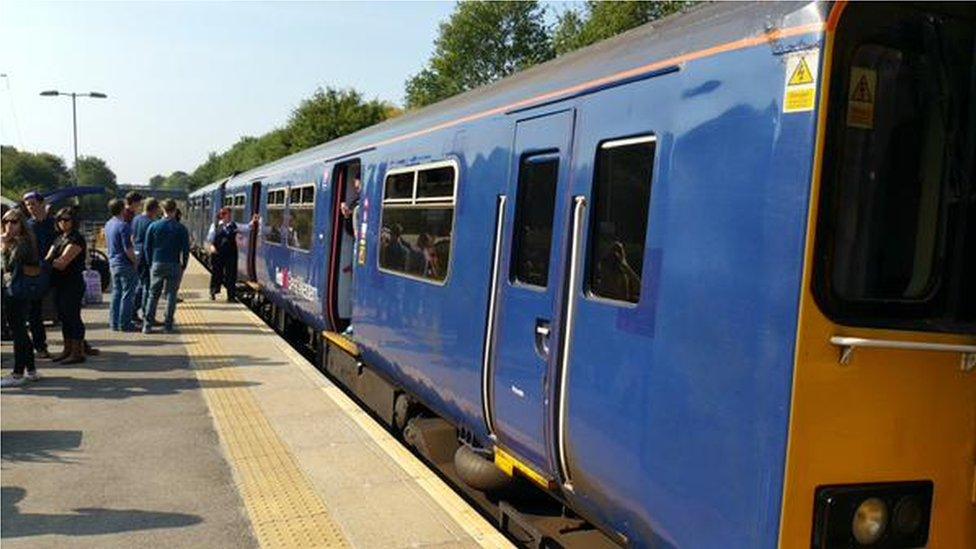New Great Western train times 'slower than 1970s', RMT claims
- Published

New £4.5m trains running from London to south Wales will be slower than those 40 years ago, a transport union has claimed.
The Rail, Maritime and Transport union says research shows 1970s services were faster than those advertised by Great Western Railways for Intercity trains.
The promised London to Cardiff journey time is 113 minutes, compared to 105 minutes under British Rail in 1977.
GWR said the union was not comparing like with like.
It also said electrification of the track would increase speeds to match some of the 1970 times, and there were more frequent services now that also stopped at more stations.

Speeds promised by 2018:
London - Bristol Temple Meads: 90 minutes
London - Cardiff: 113 minutes
London - Swansea: 164 minutes
1977 advertised speeds:
London - Bristol Temple Meads: 85 minutes
London - Cardiff: 105 minutes
London - Swansea: 163 minutes
Source: RMT

RMT general secretary Mick Cash said the report demonstrated the failures of rail privatisation.
"Privatised rail services are not only more overcrowded and expensive they are also slower.
"And of course as well as being publicly owned, British Rail trains were publicly manufactured for far less cost in the UK, as opposed to the new IEP trains which are manufactured in Japan."
Express train
GWR said some of the RMT's facts were incorrect, challenging a claim that the London-Bristol journey time would be slower.
"The fastest Bristol-London journey time, quoted by the RMT, in 1977 was one hour 25 minutes. Following electrification and the new trains, this will be one hour 19 minutes, that's six minutes faster than in 1977.
"In 1977, six trains ran every two hours between Cardiff-London and Bristol-London, compared to 12 trains every two hours following electrification and the introduction of new trains. That's double the number of services.
"The fastest Cardiff-London journey time, quoted by the RMT, in 1977 was one hour 45 minutes. This will be the same with the introduction of electrification and new trains."
RMT is in dispute with GWR over plans to cut guards and buffet car services.
Stuart Cole, professor of transport at the University of South Wales, said there had been one express train in the 1970s which ran direct from Cardiff to London without stopping.
"There was no Bristol Parkway then. They've picked the train which was the fastest as far as I can understand it; one train in the morning which did one hour 41 minutes. Most of them took longer than that.
"It they took the average journey times, that would be much more sensible."
Calling for a publically-owned railway system, Cardiff Central Labour MP Jo Stevens said privatised rail had been a failure which delivered "little by way of improvements for passengers in Cardiff but plenty by way of taxpayer subsidies for the directors and shareholders of [Great Western Railway]".
- Published21 September 2015

- Published19 September 2015

- Published23 September 2015
